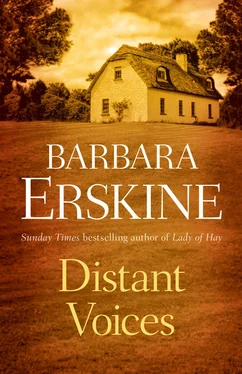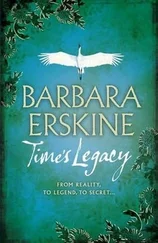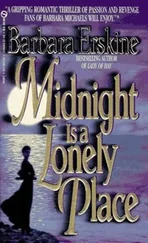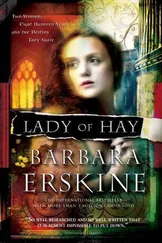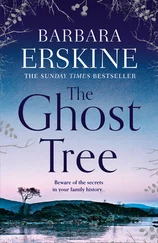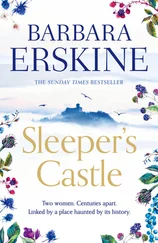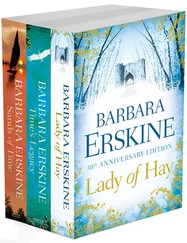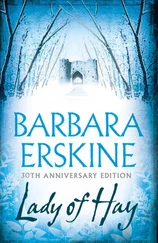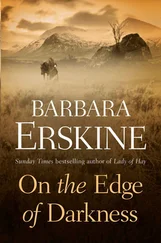Jan wiped her eyes. ‘You are an artist too?’ She was feeling rather silly.
‘A bit. If I’ve inherited half her talent I count myself a very lucky man.’ Gently he steered her to the sofa. ‘Sit down a minute. Get your breath back.’
‘How could he bear to think of selling the house?’
‘He can’t. Not really. He’d have done it years ago if he were going to. After the inquest he went back to the war even though he wasn’t really fit – I don’t suppose they asked too many questions – they needed all the men they could get. As far as I know he never came back here, but I think he must still love the house in a way. And the house must have happy memories as well as sad ones. They shared so much here. Besides, don’t you feel it? She’s still here –’ He gestured at the easel. It was another self portrait, this time in Edwardian dress, unfinished, a few details completed: the face, which was vibrant, happy, glowing with life; the sparkling jewels around her throat and wrists; her hands, the ostrich feather fan …
As they sat down Simon had left his arm around Jan’s shoulders. She was shivering. The sun had moved a little, and the studio was no longer lit across the water. It filled with weaving, drifting, green light.
‘If only she could speak to us,’ he went on. ‘Give us a sign. Something to tell Grandfather that the baby was his. It’s such a sad story, but at least then that last awful doubt would be gone and he would know once and for all that it was an accident; that she didn’t, couldn’t, have had any reason at all to kill herself.’
Jan smiled. ‘What sort of sign?’ This was scarcely objective research, but she was beginning to enjoy the feeling of his arm, so lightly draped over the back of the sofa.
‘I don’t know. Move something. Say something. I’ll leave it to her. Anything.’ He grinned. ‘Listen, Grandfather asked me to take you back to tea. He wants to lend you her letters and diaries.’
‘Then he really does trust me.’
Simon nodded slowly. ‘I told you. He wants the whole story of her life to be known at last. He said he was too old for them to hang him.’
‘But that’s admitting –’
‘No. It’s not admitting anything, except that he loved Stella more than life itself.’ Simon stood up. He held out his hand. ‘Let’s go back to the house.’
For a moment she didn’t move, then, reluctantly, she stood up. For a second she stood looking down at the face on the easel, then she followed him outside.
At the back door of the house she stopped. ‘Can I go in once more? To see the dining room?’
‘Of course.’ He stood back so that she could go ahead of him through the kitchen and out into the corridor. The dining room door stood open, a wedge of light pouring from it across the floor.
They could both hear the music. Glen Miller. And the talk and laughter. The chink of knives and forks on crockery; they could both smell the cigar smoke, and through it all the faintest trace of oil paint.
Jan found she was holding Simon’s hand. She was trembling, but she could not resist going nearer. Slowly, step by step, they crept towards the dining room as gradually the noise of the dinner party got louder. She could smell other things now. Cooking. Carefully hoarded coffee. Wine. A woman’s scent. One hand firmly clutching Simon’s, she reached forward with the other and gently she pushed the door open a fraction.
The room was empty.
In the echoing silence she gave a little sob of disappointment.
It was Simon who spotted the soft curl of an ostrich feather drifting on the bare boards.
Of course he wouldn’t really come. The idea was too bizarre. But then, a husband is a husband, even if this one had hardly fulfilled his matrimonial duties to the letter.
Zara leaned forward and gazed into the mirror. If he did come he was going to see quite a change in her after all this time. She vaguely recollected that her hair had been not only a different style but a different colour then. Her figure had improved out of recognition and maturity had brought sophistication and confidence.
‘I wonder if he’s got a paunch?’ she asked her reflection out loud. And giggled. Gerald with a paunch was unthinkable.
She looked at the letter again. It began, ‘Darling,’ – That too was unlike him. Gerald had never been one for endearments. He must be in trouble, she decided as she slipped on her elegant silk suit.
Money? She had always understood that he had plenty. He had been ‘something in the city’ when they married. She had never bothered to find out what. Certainly he had from time to time continued to pay handsome amounts into her account. For old times’ sake and when he remembered, she always thought, rather than for any mundane idea that he should support his wife. Not that she had needed supporting for years, of course, thank God. But, come to think of it, there had been no money now for nearly a year.
She stood sideways to the mirror and ran a critical hand down her flat stomach. No. She was the kind of woman who did well in business and thrived on it. Gerald’s conscience money or whatever it was had brought her some nice little extras, like the small Mercedes in the driveway. It had in no way gone towards her upkeep.
Well. If not money, what? Women. She knew some wives were called on to extricate their husbands from the clutches of too-persistent girlfriends, but Gerald had never had that problem. She had heard in fact that he merely turned the latest woman onto the last with a cold-blooded delight which often shocked both parties into flight. She paused for a moment. Perhaps he wanted a divorce? No. It was unthinkable. He, like her, found the state of absentee matrimony far too useful and pleasant an arrangement to end it.
The police? She looked at the mirror for a moment, her eyes wide, and then shrugged the idea away. It was too ridiculous to contemplate.
Zara gave up the idle speculation with a glance at her watch, ran downstairs, collected the car keys from the mantelpiece and went to the door. She was not usually given to conjecture and certainly not to day dreaming, and she had made herself uncharacteristically late for the board meeting.
He was sitting on the doorstep.
In rags.
For fully two minutes Zara looked down at her husband without speaking. Then, bleakly, she stood back and motioned him into the house, wrinkling her nose ostentatiously as he passed in front of her.
He walked straight to the drinks table and poured himself a Scotch. Then he turned and looked her up and down. He was slim still, no sign of a paunch, lean and hard, brown and fit, and his eyes twinkled mischievously.
‘Go and run me a bath, Za-Za, dear. Then you can stop holding your nose, and we can talk.’
‘But, Gerald!’ Her usually well-modulated voice had risen to a squeak. ‘What’s happened to you?’
‘Fate hasn’t been kind, lady.’ He put on what sounded like a very professional whine. But still his face was laughing. ‘Go on woman, before my fleas start hopping onto your Persian rugs.’
With a cry of horror she fled upstairs and, turning both taps on full, groped for the small bottle of Dettol in the medicine cabinet. It smelled very strong in the steam, but anything was better than Gerald’s … aroma.
Читать дальше
